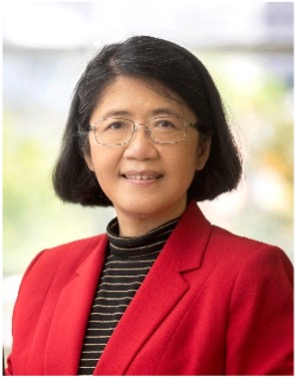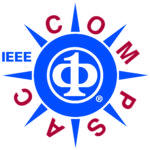COMPSAC 2023 Plenary Panel
Plenary Panel: Future Directions Led Technologies for a Resilient Sustainable World
Moderated by Kathy Grise, Senior Program Director, IEEE Future Directions
Thursday June 29
Description: During the pandemic-induced chaos of the last few years, the world has persevered and maintained a sense of order and stability. The world has been challenged not just with the COVID pandemic but also to natural and man-made disasters, and political instability. That is where we as technologists, engineers, and scientists are focused on leveraging technology to transform and build a more resilient and sustainable world. IEEE Future Directions serves as an incubator for new initiatives that are not just technology based but on societal, economic, and ethical aspects. Current efforts include Low Earth Orbit (LEO) Satellites & Systems, the Metaverse, Quantum technologies, Smart Lighting, Telepresence, and Wireless Power Technologies. Additional initiatives that span multiple technologies cover Sustainable Climate Change, Digital Privacy, and Public Safety. All are an example of a megatrend. Emphasis will be upon presenting practical applications and its implementations of interest to attendees.Subject matter expert speakers will comment on current and past implementations.
Format: Participate in person or via livestream the discussion with a panel of industry experts from several distinct fields who will provide their perspectives, observations, and how we can apply these technologies in real life.
 Kathy Grise, Senior Program Director – IEEE Future Directions, supports new technology initiatives, is the IEEE staff program director for the Digital Reality Initiative, the IEEE Technology Navigator AI, Future Directions and Industry Advisory Board Committees, and manages the digital presence team for Future Directions. Previous initiatives included big data and cloud computing. Ms. Grise served as the Technical Program Chair of the IEEE COMPSAC 2022 Symposium – Data Sciences, Analytics, & Technologies (DSAT).Prior to joining the IEEE staff, Ms. Grise held numerous positions at IBM, and most recently was a Senior Engineering Manager for Process Design Kit Enablement in the IBM Semiconductor Research and Development Center. Ms. Grise led the overall IT infrastructure implementation, and software development in support of semiconductor device modeling verification, packaging, and delivery; device measurement and characterization data collection and management, and automation for device modeling engineers. Ms. Grise is a graduate of Washington and Jefferson College, and an IEEE Senior member.
Kathy Grise, Senior Program Director – IEEE Future Directions, supports new technology initiatives, is the IEEE staff program director for the Digital Reality Initiative, the IEEE Technology Navigator AI, Future Directions and Industry Advisory Board Committees, and manages the digital presence team for Future Directions. Previous initiatives included big data and cloud computing. Ms. Grise served as the Technical Program Chair of the IEEE COMPSAC 2022 Symposium – Data Sciences, Analytics, & Technologies (DSAT).Prior to joining the IEEE staff, Ms. Grise held numerous positions at IBM, and most recently was a Senior Engineering Manager for Process Design Kit Enablement in the IBM Semiconductor Research and Development Center. Ms. Grise led the overall IT infrastructure implementation, and software development in support of semiconductor device modeling verification, packaging, and delivery; device measurement and characterization data collection and management, and automation for device modeling engineers. Ms. Grise is a graduate of Washington and Jefferson College, and an IEEE Senior member.
Panelists:
 Fabrizio Lamberti is full professor at Politecnico di Torino, Turin, Italy. His research interests include computational intelligence, human–computer interaction, computer graphics, and visualization. Lamberti co-authored more than 150 technical papers in international journals and conferences in the areas of computer graphics, computer vision, human-machine interaction and intelligent systems. He has also coordinated and participated to the activities of a number of research projects at the national and international level funded by both public and private bodies in the above fields. He is a senior member of the IEEE. He is an Associate Editor of IEEE Consumer Electronics Magazine, of the IEEE Transactions on Computer, of the IEEE Transactions on Emerging Topics in Computing and of the IEEE Transactions on Learning Technologies.
Fabrizio Lamberti is full professor at Politecnico di Torino, Turin, Italy. His research interests include computational intelligence, human–computer interaction, computer graphics, and visualization. Lamberti co-authored more than 150 technical papers in international journals and conferences in the areas of computer graphics, computer vision, human-machine interaction and intelligent systems. He has also coordinated and participated to the activities of a number of research projects at the national and international level funded by both public and private bodies in the above fields. He is a senior member of the IEEE. He is an Associate Editor of IEEE Consumer Electronics Magazine, of the IEEE Transactions on Computer, of the IEEE Transactions on Emerging Topics in Computing and of the IEEE Transactions on Learning Technologies.
 Louis Nisiotis is the Course Leader for BSc Computing at the University of Central Lancashire, Cyprus, responsible for delivering the Games Development and Computer Graphics modules. Dr. Nisiotis is leading research in innovation and application of Intelligent Reality systems and immersive XR technologies to support and foster the ongoing digital transformation of education, industry and the society, to disrupt the way we (humans) interact with real and virtual environments, with our surroundings, and with each other. His research interests include eXtended Reality (XR) technologies, Intelligent Reality Systems, Cyber-Physical-Social Systems, Serious Games, Human Computer Interaction, and immersive Learning. He was the General Chair of the IEEE International Conference on Intelligent Reality (ICIR 2022), and is serving the scientific community as the as review editor and editorial member of prestigious scientific journals and conferences. He is a Steering Committee Member of the IEEE Metaverse scientific community, and a member of the Immersive Learning Research Network. He is also a Fellow of the UK Higher Education Academy, IEEE, and ACM SIGCSE.
Louis Nisiotis is the Course Leader for BSc Computing at the University of Central Lancashire, Cyprus, responsible for delivering the Games Development and Computer Graphics modules. Dr. Nisiotis is leading research in innovation and application of Intelligent Reality systems and immersive XR technologies to support and foster the ongoing digital transformation of education, industry and the society, to disrupt the way we (humans) interact with real and virtual environments, with our surroundings, and with each other. His research interests include eXtended Reality (XR) technologies, Intelligent Reality Systems, Cyber-Physical-Social Systems, Serious Games, Human Computer Interaction, and immersive Learning. He was the General Chair of the IEEE International Conference on Intelligent Reality (ICIR 2022), and is serving the scientific community as the as review editor and editorial member of prestigious scientific journals and conferences. He is a Steering Committee Member of the IEEE Metaverse scientific community, and a member of the Immersive Learning Research Network. He is also a Fellow of the UK Higher Education Academy, IEEE, and ACM SIGCSE.
 Jeewika Ranaweera is an engineer, an author, an illustrator, an inventor, a sustainability champion, a frequent conference speaker, and an avid volunteer for IEEE and various women in tech organizations. She is an IEEE Senior Member, an ABET PEV, the vice chair for IEEE Future Directions Committee, a member of the ABET team and the Committee on Engineering Accreditation Activities (CEAA). Jeewika authored an eBook about her engineering journey for IEEE Women in Engineering to inspire others to follow STEM careers and illustrated the 1st children’s book published by IEEE. She received her bachelor’s in Computer Science and engineering from ISPJAE in Havana, Cuba and her Master’s and PhD degrees in Electrical and Computer Engineering from the University of Toronto, Canada. She has authored and co-authored many papers published in technical journals and presented at international conferences. Jeewika holds five US Patents.
Jeewika Ranaweera is an engineer, an author, an illustrator, an inventor, a sustainability champion, a frequent conference speaker, and an avid volunteer for IEEE and various women in tech organizations. She is an IEEE Senior Member, an ABET PEV, the vice chair for IEEE Future Directions Committee, a member of the ABET team and the Committee on Engineering Accreditation Activities (CEAA). Jeewika authored an eBook about her engineering journey for IEEE Women in Engineering to inspire others to follow STEM careers and illustrated the 1st children’s book published by IEEE. She received her bachelor’s in Computer Science and engineering from ISPJAE in Havana, Cuba and her Master’s and PhD degrees in Electrical and Computer Engineering from the University of Toronto, Canada. She has authored and co-authored many papers published in technical journals and presented at international conferences. Jeewika holds five US Patents.
 May Dongmei Wang is Wallace H. Coulter Distinguished Faculty Fellow and full professor of Biomedical Engineering, Electrical and Computer Engineering, Computational Science and Engineering at Georgia Institute of Technology (GT) and Emory University (EU). She is Director of Biomedical Big Data Initiative, Georgia Distinguished Cancer Scholar, Petit Institute Faculty Fellow, Kavli Fellow, AIMBE Fellow, IAMBE Fellow, IEEE Fellow, and Board of Directors of American Board of AI in Medicine. Her research is in Biomedical Big Data with AI-Driven Intelligent Reality (IR) for predictive, personalized, and precision health (pHealth). She has 20+ years academic professorship and ~4 years industrial research experience, published 290+ articles in referred journals and conference proceedings with 15,000+ Google Scholar citations, and delivered 280+ invited and keynote lectures. Dr. Wang received BEng from Tsinghua University China, and MS with PhD degrees from GT. She is a recipient of GT Outstanding Faculty Mentor for Undergrad Research Award, and EU MilliPub Award (for a high-impact paper that is cited over 1,000 times). At Georgia Tech, Dr. Wang is in 2022 President LeadingWomen Program and 2021 Provost Emerging Leaders Program. She was 2018-2021 Carol Ann and David Flanagan Distinguished Faculty Fellow, and 2015-2017 GT Biomedical Informatics Program Co-Director in Atlanta Clinical and Translational Science Institute (ACTSI). Before 2016, Dr. Wang was Director of Bioinformatics and Biocomputing Core in NIH/NCI-sponsored U54 Center for Cancer Nanotechnology Excellence, and Co-Director of GT Center of Bio-Imaging Mass Spectrometry for over 10 years. Dr. Wang is the Senior Editor for IEEE Journal of Biomedical & Health Informatics (J-BHI, Impact Factor 7.02), an Associate Editor for IEEE Transactions for BME and IEEE Reviews for BME, a panelist for NIH CDMA (Clinical Data Management and Analysis) Study Section, NSF Smart and Connect Health, Brain Canada every year. She was 2016 IEEE-EMBS Annual Conference Co-Chair, 2014-2015 IEEE-EMBS Distinguished Lecturer, and an Emerging Area Editor for Proceedings of National Academy of Sciences (PNAS). She organized IEEE-JBHI Special Issue on AI-driven Informatics, Sensing, Imaging and Big Data Analytics for Fighting the COVID-19 Pandemic. Dr. Wang has chaired IEEE Biomedical and Health Informatics (BHI) community and ACM Special Interest Group in Bioinformatics. Currently, Dr. Wang serves in both IEEE Future Directions Committee and International Academy of Medical and Biological Engineering (IAMBE) Executive Committee, and is IEEE-Engineering in Medicine and Biology Society (IEEE-EMBS) Vice President. Dr. Wang’s research has been supported by NIH, NSF, CDC, VA, Georgia Research Alliance, Georgia Cancer Coalition, Shriners’ Hospitals for Children, Children’s Health Care of Atlanta, Enduring Heart Foundation, Coulter Foundation, Imlay Foundation, Microsoft Research, HP, UCB, and Amazon.
May Dongmei Wang is Wallace H. Coulter Distinguished Faculty Fellow and full professor of Biomedical Engineering, Electrical and Computer Engineering, Computational Science and Engineering at Georgia Institute of Technology (GT) and Emory University (EU). She is Director of Biomedical Big Data Initiative, Georgia Distinguished Cancer Scholar, Petit Institute Faculty Fellow, Kavli Fellow, AIMBE Fellow, IAMBE Fellow, IEEE Fellow, and Board of Directors of American Board of AI in Medicine. Her research is in Biomedical Big Data with AI-Driven Intelligent Reality (IR) for predictive, personalized, and precision health (pHealth). She has 20+ years academic professorship and ~4 years industrial research experience, published 290+ articles in referred journals and conference proceedings with 15,000+ Google Scholar citations, and delivered 280+ invited and keynote lectures. Dr. Wang received BEng from Tsinghua University China, and MS with PhD degrees from GT. She is a recipient of GT Outstanding Faculty Mentor for Undergrad Research Award, and EU MilliPub Award (for a high-impact paper that is cited over 1,000 times). At Georgia Tech, Dr. Wang is in 2022 President LeadingWomen Program and 2021 Provost Emerging Leaders Program. She was 2018-2021 Carol Ann and David Flanagan Distinguished Faculty Fellow, and 2015-2017 GT Biomedical Informatics Program Co-Director in Atlanta Clinical and Translational Science Institute (ACTSI). Before 2016, Dr. Wang was Director of Bioinformatics and Biocomputing Core in NIH/NCI-sponsored U54 Center for Cancer Nanotechnology Excellence, and Co-Director of GT Center of Bio-Imaging Mass Spectrometry for over 10 years. Dr. Wang is the Senior Editor for IEEE Journal of Biomedical & Health Informatics (J-BHI, Impact Factor 7.02), an Associate Editor for IEEE Transactions for BME and IEEE Reviews for BME, a panelist for NIH CDMA (Clinical Data Management and Analysis) Study Section, NSF Smart and Connect Health, Brain Canada every year. She was 2016 IEEE-EMBS Annual Conference Co-Chair, 2014-2015 IEEE-EMBS Distinguished Lecturer, and an Emerging Area Editor for Proceedings of National Academy of Sciences (PNAS). She organized IEEE-JBHI Special Issue on AI-driven Informatics, Sensing, Imaging and Big Data Analytics for Fighting the COVID-19 Pandemic. Dr. Wang has chaired IEEE Biomedical and Health Informatics (BHI) community and ACM Special Interest Group in Bioinformatics. Currently, Dr. Wang serves in both IEEE Future Directions Committee and International Academy of Medical and Biological Engineering (IAMBE) Executive Committee, and is IEEE-Engineering in Medicine and Biology Society (IEEE-EMBS) Vice President. Dr. Wang’s research has been supported by NIH, NSF, CDC, VA, Georgia Research Alliance, Georgia Cancer Coalition, Shriners’ Hospitals for Children, Children’s Health Care of Atlanta, Enduring Heart Foundation, Coulter Foundation, Imlay Foundation, Microsoft Research, HP, UCB, and Amazon.

